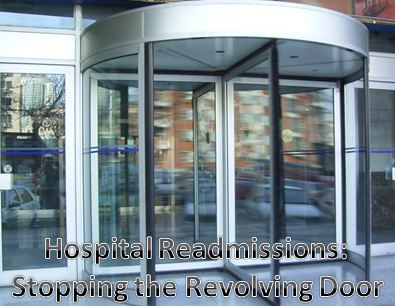Elder Care and Elder Rage: Know the Warning Signs of Alzheimer’s
Advice and Perspective from Jacqueline Marcell, family caregiver and author of Elder Rage
Jacqueline Marcell is the author of Elder Rage, a book and website based on her caregiving experiences. Here Aging Wisely shares some insights from Jacqueline as one of our special blog guests to hear her family caregiving perspective and some of the important advice she took away from the challenges she experienced while caring for her mother and father.
Aging Wisely: Give us a little background about your family caregiving experiences.
Jacqueline: For eleven years I pleaded with my obstinate elderly father to allow a caregiver to help him with my ailing mother, but after 55 years of loving each other he adamantly insisted on taking care of her himself. Every caregiver I hired to help him called in exasperation, “Jacqueline, I just can’t work with your father–his temper is impossible to handle. I don’t think he’ll accept help until he’s on his knees himself.”
My father had always been 90% great, but boy-oh-boy that temper was a doozy. He’d never turned on me before, but I’d never gone against his wishes either. When my mother nearly died from his inability to continue to care for her, I flew from southern California to San Francisco determined to save her life–having no idea that it would nearly cost me my own.
Tell us about the early stages of trying to get involved (and some of the early signs something more might be going wrong).
I spent three months in the hospital nursing my 82-pound mother back to relative health, while my father went from normal one minute to calling me nasty names and throwing me out of the house the next. I walked on egg shells trying not to upset him, even running the washing machine could cause a tizzy, and there was no way to reason with him. It was heart wrenching to have my once-adoring father turn against me.
I immediately took my father to his doctor, only to be flabbergasted that he could act normal when he needed to. I could not believe it when the doctor looked at me as if I were lying. She didn’t even take me seriously when I reported my father had nearly electrocuted my mother, but fortunately I walked into the bathroom three seconds before he plugged in a huge power strip that was soaking in a tub of water–along with my mother’s feet! Much later, I was furious to find out my father had instructed his doctor (and everyone) not to listen to anything I said because I was just a (bleep) liar—and all I wanted was his money!
Then things got serious. My father had never laid a hand on me my whole life, but one day nearly choked me to death for adding HBO to his television, even though he had eagerly consented to it a few days before. Terrified, I call the police for the first time in my life who took him to a psychiatric hospital for evaluation. I could not believe it when they released him right away, saying they couldn’t find anything wrong with him. What is even more astonishing is that similar incidents occurred three more times.
Then you ran in to more problems…and what you call the “Caregiver Catch 22”?
After three months, I was finally able to bring my frail mother home from the hospital, but furious to find myself trapped. I couldn’t fly home and leave her alone with my father–she’d surely die from his inability to care for her. I couldn’t get my father to accept a caregiver, and even when I did—no one would put up with his temper very long. I couldn’t get healthcare professionals to help–my father was always so darling in front of them. I couldn’t get medication to calm him, and even when I finally did—he refused to take it and flushed it down the toilet. I couldn’t place my mother in a nursing home—he’d take her out. I couldn’t put him in a home—he didn’t qualify. They both refused Assisted Living—legally I couldn’t force them. I became a prisoner in my parents’ home for nearly a year trying to solve crisis after crisis, begging for professional help—and infuriated with a medical system that I didn’t feel was helping me appropriately.
When and how did you finally get some answers?
You don’t need a doctorate degree to know something is wrong, but you do need the right doctor who can diagnose and treat dementia properly. Finally, a friend suggested I call the Alzheimer’s Association who directed me to the best neurologist in the area who specialized in dementia. He performed a battery of blood, neurological, memory tests, CT and P.E.T. scans. After reviewing my parents’ many medications and ruling out numerous reversible dementias such as a B-12 and thyroid deficiency, you should have seen my face drop when he diagnosed Stage One Alzheimer’s in both parents—something all their other healthcare professionals missed entirely.
You learned a lot about some of the most challenging aspects of Alzheimer’s, especially in the early stages which can be particularly hard for family members.
What I’d been coping with was the beginning of Alzheimer’s (just one type of dementia), which begins very intermittently. I didn’t understand that my father was addicted and trapped in his own bad behavior of a lifetime and his habit of yelling to get his way was coming out over things that were irrational… at times. I also didn’t understand that demented does not mean dumb (a concept not widely appreciated) and that he was still socially adjusted enough to never to show his ‘Hyde’ side to anyone outside the family. Even with the onset of dementia, it was astonishing he could be so manipulative. On the other hand, my mother was as sweet and lovely as she’d always been.
Share with our readers some of the important information your learned about Alzheimer’s disease.
Alzheimer’s makes up 60-80% of all dementias.
There is not a cure and it is a progressive disease. However, if identified early there are four FDA approved medications (Aricept, Exelon, Razadyne and Namenda) that mask symptoms, keeping the patient in the early independent stage longer, delaying the need for part to full-time care. The Alzheimer’s Association reports that with optimal lifestyle changes (proper nutrition, weight, exercise, socialization), a five year delay in the onset could save $50 BILLION in annual healthcare costs. Even a one month delay in nursing home placement of Alzheimer’s patients could save the U.S. $1 BILLION annually.
An expert in the brain chemistry can help find solutions that can make all the difference. It sounds like this is what you experienced working closely with a neurologist?
After the neurologist worked on the Alzheimer’s treatments for my parents, he treated their depression which is often present in AD patients. It wasn’t easy to get the dosages right and it took time and patience — and no, my father wasn’t suddenly turned into an angel, but at least we didn’t need police intervention any longer!
What else were you able to do as a caregiver to stabilize the situation and make life more optimal for both you and your parents?
Once my parents’ brain chemistries were better balanced, I was able to optimize nutrition, fluids, medication, treatments, exercise and socialization with much less resistance. I was also able to implement creative techniques to cope with the intermittent bizarre behaviors. Instead of logic and reason—I used distraction and redirection to things they were interested in. I learned to use reminiscence and talk about the old days, capitalizing on their long-term memories which were still quite good. Instead of arguing the facts—I agreed, validated frustrated feelings, and lived in their realities of the moment. I finally learned to just ‘go with the flow’ and let hurtful comments roll off.
And if none of that worked, a bribe of ice cream worked the best to cajole my father into the shower, even as he swore a blue streak at me that he’d just taken one yesterday (over a week ago). I was also finally able to get my father to accept a caregiver (he’d only alienated 40 that year—most only there for about ten minutes), and then with the benefit of Adult Day Care five days a week for my parents and a support group for me, everything finally started to fall into place.
Tell us about the financial side of things.
Before long my parents’ life savings was gone and we were well into mine. I was advised to apply for Medicaid and after months of evaluation they were approved for financial help from the government. I was so relieved, until I learned it would only pay to put my parents in a nursing home, not keep them at home with 24/7 care. And, since my mother needed more skilled care than my father, they’d be separated, something they would never consent to—nor did I want after all this work to keep them together.
I could not believe it—I finally had everything figured out medically, behaviorally, socially, legally, emotionally, caregivers in place, the house elder-proofed, and all I needed was financial help to keep them at home. If I’d only made sure my parents bought Long Term Care Insurance (or bought it for them) years ago while they were healthy before diagnosis of dementia, it could have covered the cost of their care at home. Instead, I paid for their care, which nearly wiped me out in every way. After five years of managing 24/7 care for my parents, I survived invasive breast cancer.
As we mentioned, it is an all too-common phenomena that dementia is overlooked. You learned a tough lesson in this difficult process.
What is so unsettling is that not one healthcare professional discussed the possibility of the beginning of Alzheimer’s (or any type of dementia) in my parents with me that first year, which happens far too often. Alzheimer’s afflicts 5.4 million Americans, but millions go undiagnosed for years because intermittent subtle warning signs are chalked up to stress or a ‘normal’ part of aging. Since one out of eight by age 65, and nearly half by age 85 get AD, healthcare professionals of every specialty should know the ‘Ten Warning Signs of Alzheimer’s’ and educate their patients early so everyone can save time, money—and a fortune in Kleenex!
You can grab the warning signs of dementia and our memory loss fact sheet here. Let’s all take a valuable lesson from the tough road Jacqueline faced and help spread the word and share awareness about the signs, symptoms and terminology related to dementia.
We also encourage you to seek help from a geriatric care manager if you are struggling with caregiving issues, or even wondering if it is time to step in when you are feeling concerns about an aging parent. We’re here to help at 727-447-5845 or click below to schedule a consultation, to begin getting answers to your questions, resources and more:
Jacqueline Marcell is an international speaker on Eldercare & Alzheimer’s, host of the COPING with CAREGIVING radio show, and author of the best-selling book, ELDER RAGE. You can learn more about Jacqueline and all the resources she offers at www.ElderRage.com.
Did you like this? Share it:



 Hospital readmissions are costly not only to Medicare but to the elders and families involved.
Hospital readmissions are costly not only to Medicare but to the elders and families involved.  Medicare open enrollment is around the corner for Florida seniors and families around the country. It is an important time to review your Medicare coverage and costs to decide if it is wise to make a change for 2013.
Medicare open enrollment is around the corner for Florida seniors and families around the country. It is an important time to review your Medicare coverage and costs to decide if it is wise to make a change for 2013. The Readmissions Reduction program begins by penalizing hospitals with below-standard readmissions rates on some of the primary diagnoses for which these issues are common: heart failure, heart attack and pneumonia. CMS (Centers for Medicare and Medicaid Services) will expand the list of diagnoses over time. This will create a direct effect as Medicare will cut a low-performing hospital’s reimbursement. Hospitals have been preparing for this change for some time and targeting geriatric case management and discharge planning for ways to reduce readmissions.
The Readmissions Reduction program begins by penalizing hospitals with below-standard readmissions rates on some of the primary diagnoses for which these issues are common: heart failure, heart attack and pneumonia. CMS (Centers for Medicare and Medicaid Services) will expand the list of diagnoses over time. This will create a direct effect as Medicare will cut a low-performing hospital’s reimbursement. Hospitals have been preparing for this change for some time and targeting geriatric case management and discharge planning for ways to reduce readmissions. Popular Downloads
Popular Downloads


 Get Our Newsletter!
Get Our Newsletter! Mission Statement
Mission Statement

